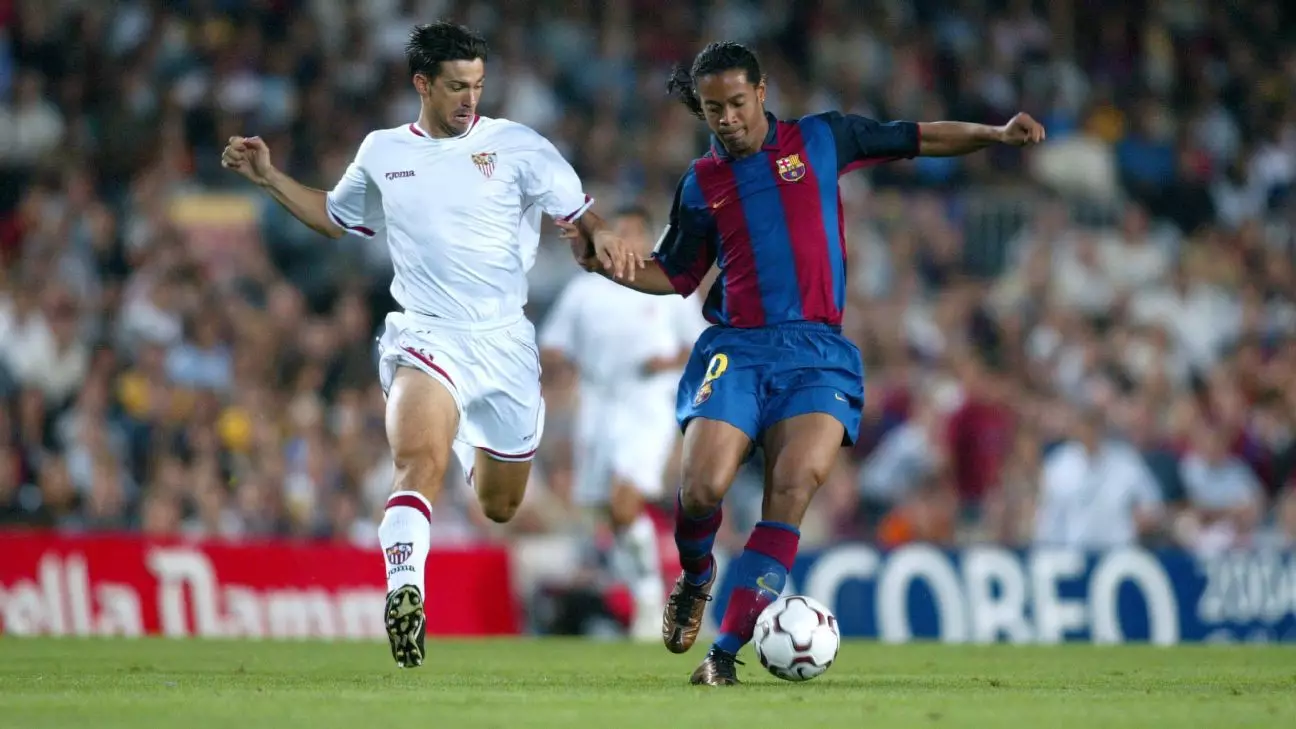In the world of professional football, kick-off times are typically scheduled to accommodate both players and fans at convenient hours. However, there have been instances where games have kicked off at unconventional times, creating unique and memorable experiences for all involved. One such instance occurred at Camp Nou in September 2003 when FC Barcelona took on Sevilla in LaLiga at the unprecedented time of 12:05 a.m. on a Wednesday. This decision to have a late-night kick-off raised eyebrows and led to a series of events that captured the attention of football fans worldwide.
The late-night kick-off between FC Barcelona and Sevilla was not a random occurrence but a result of scheduling conflicts and strategic decisions made by the clubs involved. The Spanish league had scheduled the second round of fixtures to be played in midweek before the September international break, forcing most teams to play matches from Saturday through Tuesday. However, FC Barcelona and Sevilla could not agree on a suitable time slot for their game. Sevilla could not move their weekend game due to printed tickets and scheduled logistics, and they also declined to play on Monday or Tuesday as it would fall within 48 hours of their previous match. Sensing an opportunity to face a weakened FC Barcelona squad without their internationals, Sevilla refused to reschedule the fixture for a later date in the season.
As a result of the scheduling conflicts and the determined efforts of FC Barcelona to field a competitive team, the late-night kick-off at Camp Nou was born. The match was dubbed “The Night of Gazpacho” in reference to the unusual kick-off time and the unique atmosphere created for the fans in attendance. The decision to start the game after midnight was met with mixed reactions from players, coaches, and football enthusiasts. While some saw it as an exciting opportunity for an unforgettable experience, others criticized the decision as being detrimental to the sport. Despite the initial skepticism, FC Barcelona went to great lengths to ensure that fans would turn up for the game by offering various incentives and entertainment options, such as keeping the club museum open until midnight and providing free food and drinks to attendees.
The late-night kick-off between FC Barcelona and Sevilla may have been unconventional, but it paved the way for one of the most memorable moments in football history. As the game progressed into the early hours of the morning, FC Barcelona’s star player Ronaldinho rose to the occasion and delivered a remarkable performance. Despite missing several key players, including his international teammates, Ronaldinho showcased his skill and determination by scoring a sensational goal that ignited the crowd and secured a crucial equalizer for his team. The goal not only demonstrated Ronaldinho’s exceptional talent but also highlighted his ability to perform under extraordinary circumstances.
The impact of unusual kick-off times in professional football extends beyond mere scheduling conflicts and logistical challenges. It has the potential to create unique and memorable experiences for players, coaches, and fans alike. The late-night kick-off between FC Barcelona and Sevilla serves as a reminder of the creativity and resilience displayed by clubs in navigating unexpected circumstances. While not every match may feature a late-night kick-off, the legacy of “The Night of Gazpacho” lives on as a testament to the unpredictable and exhilarating nature of the beautiful game.

Leave a Reply